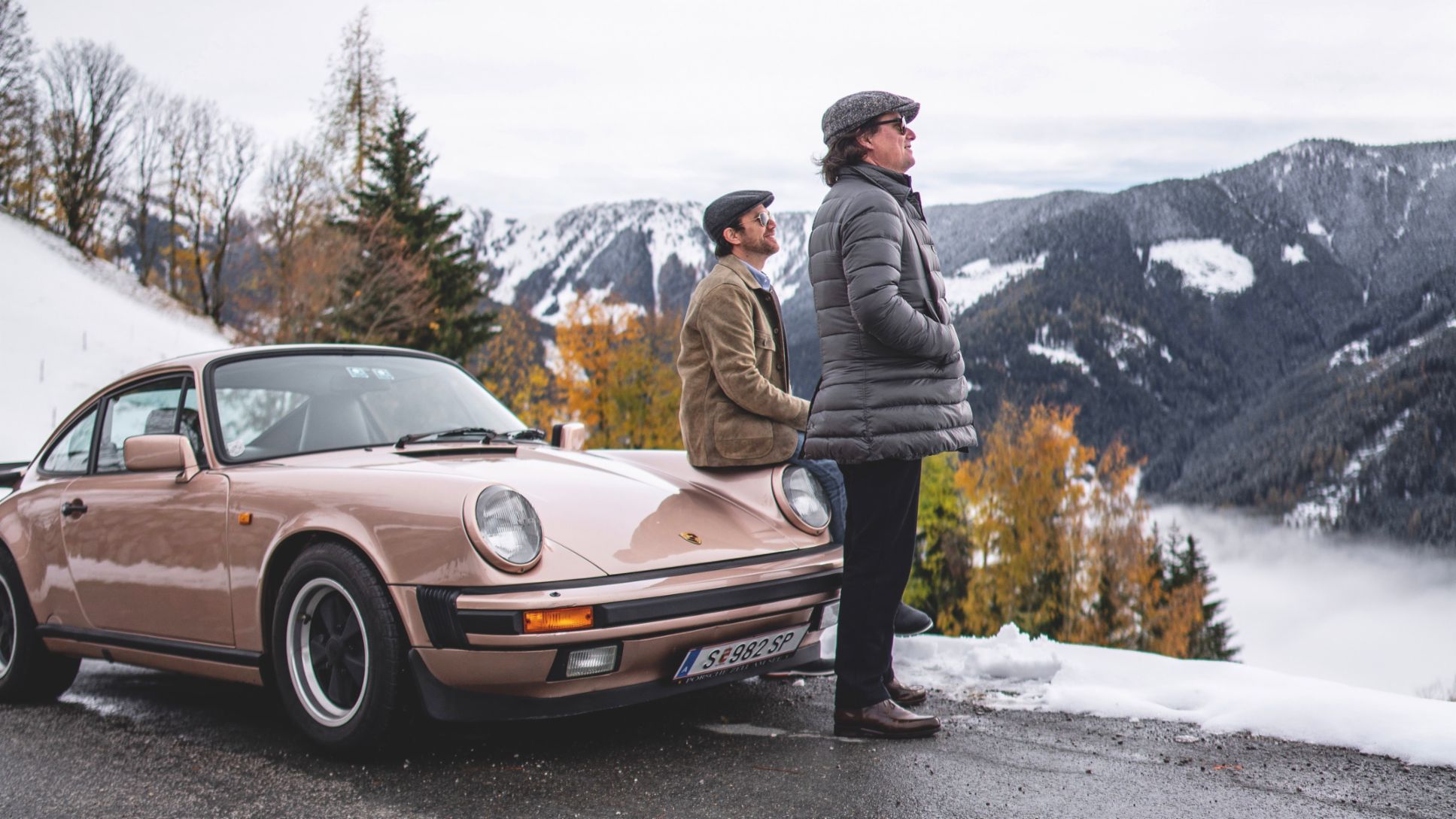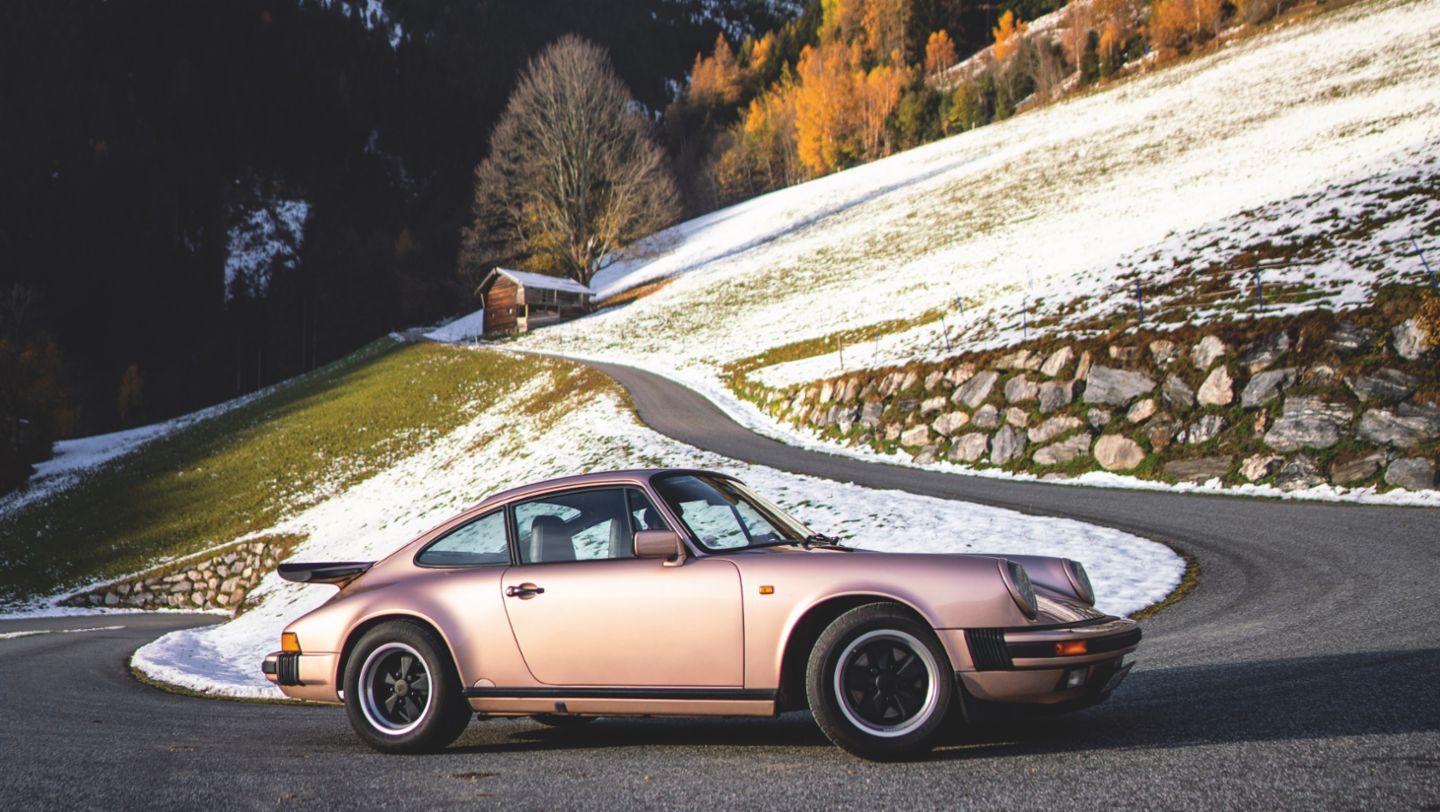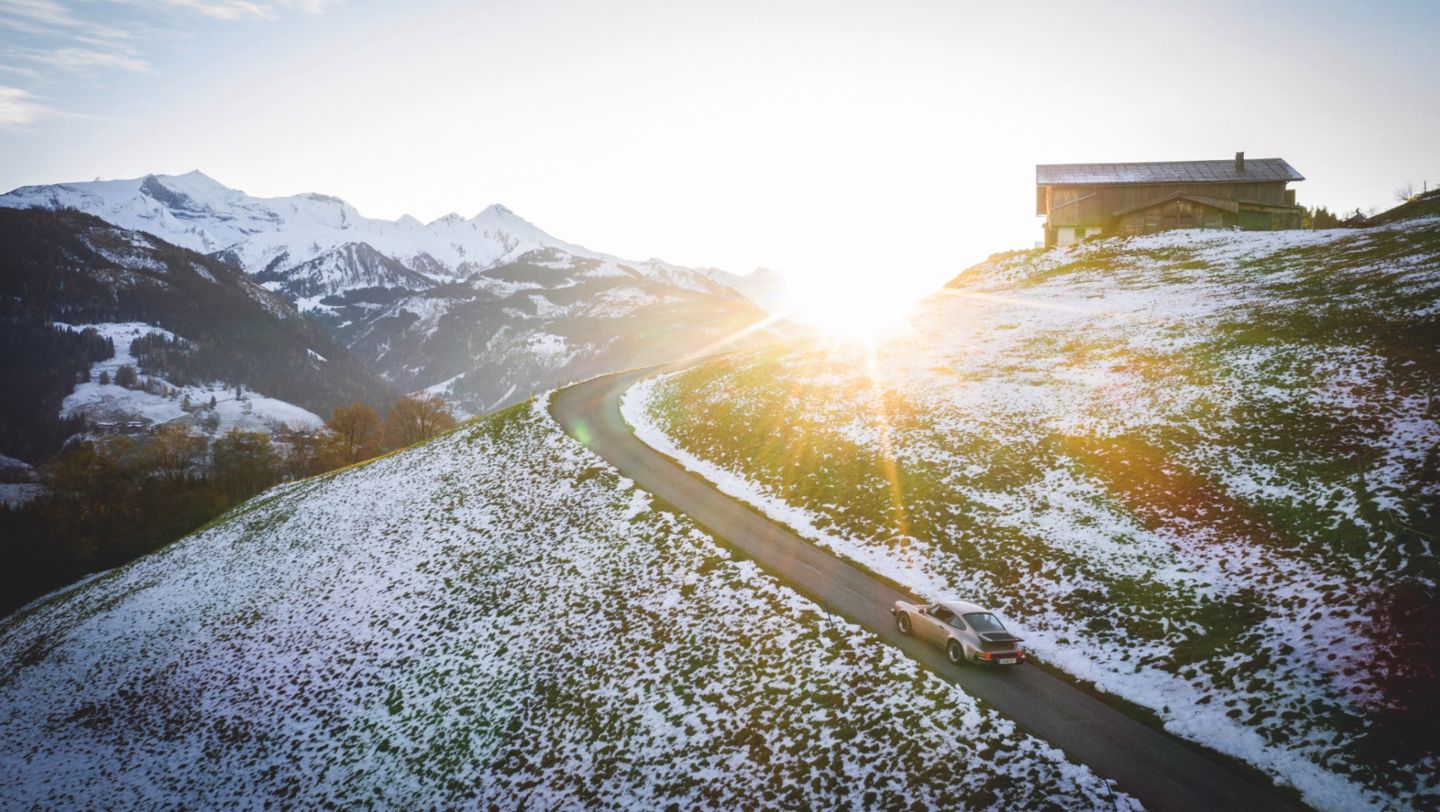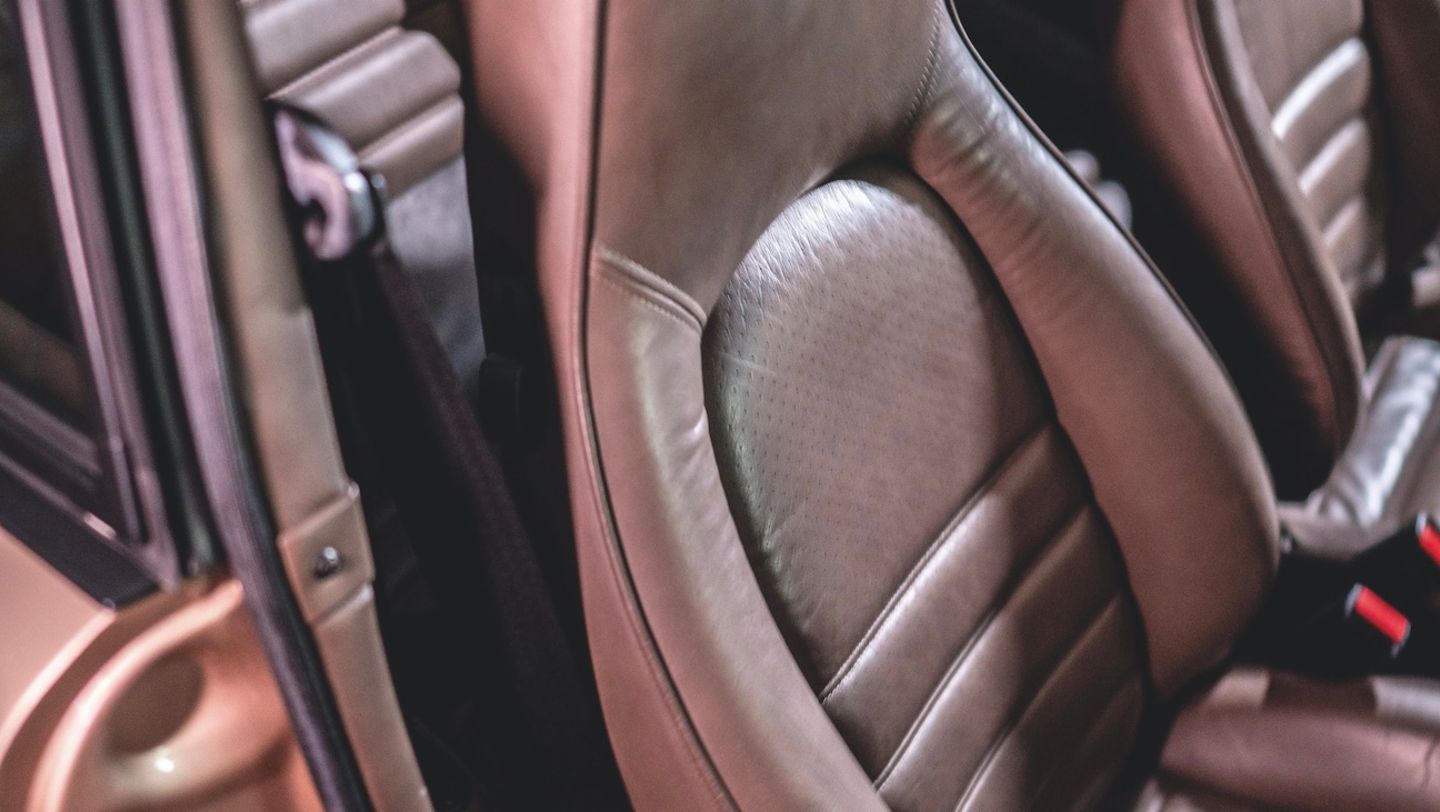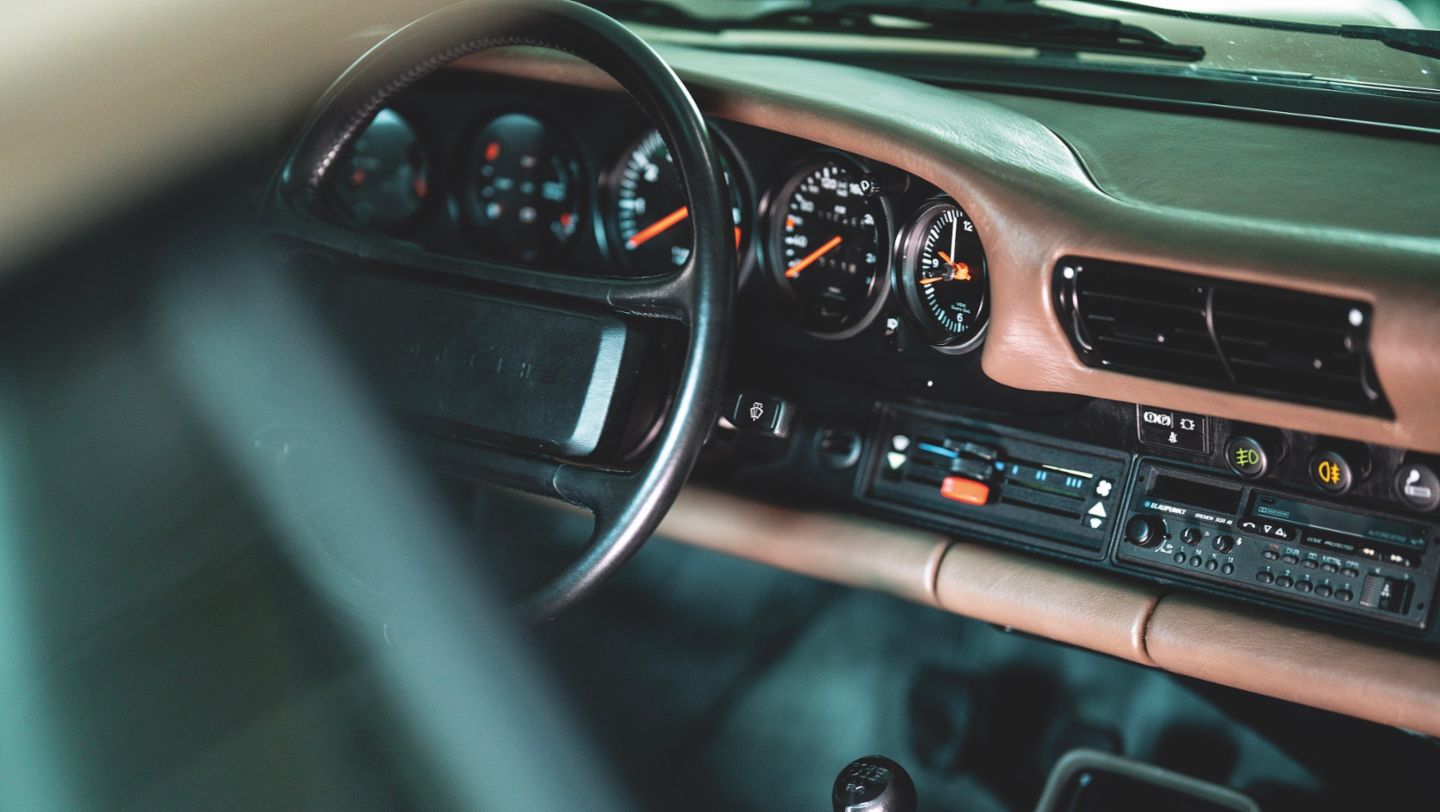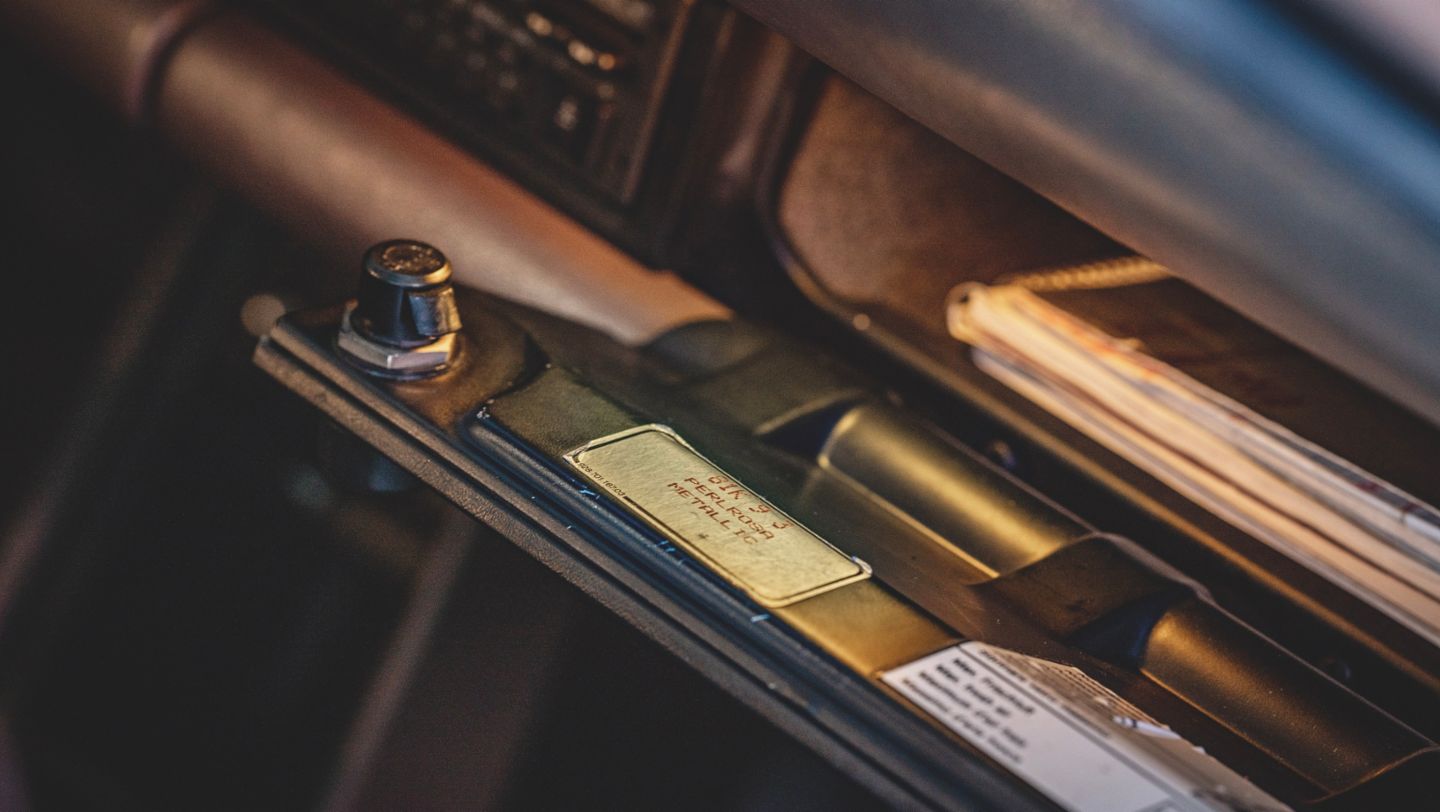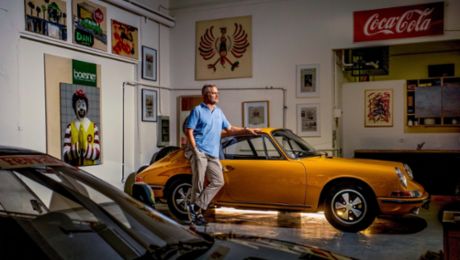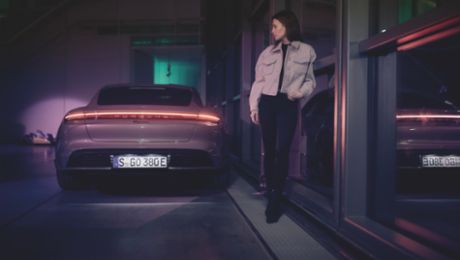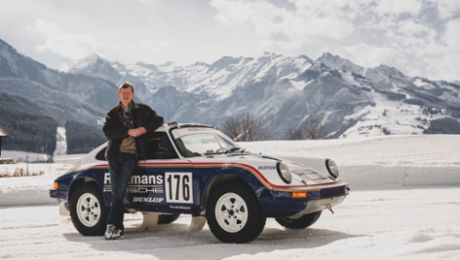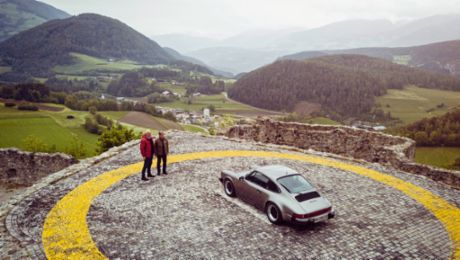Pearl Pink Metallic really comes into its own in the morning sun. We scan nearly every millimetre of the unique paint job, which can appear pink, a pearlescent rose, or Sahara-, Cashmere- or Ceramic Beige depending on the light. Suddenly an arrow-shaped shadow starts flitting across the silhouette, over and over. We look to the sky with squinting eyes and spot a golden eagle circling majestically above. Was it eyeing the drone taking off, or interested in the sports car below? Before we can decide, the eagle has turned away and is riding the updraft, corkscrewing ever higher into the Austrian sky above the northern Alps – a silent greeting before it veers off toward the Kitzsteinhorn that stands guard over Lake Zell.
Historically, this area has always been closely associated with the name Porsche. Not only did Ferry Porsche find a suitable location for his family here, but there was also an abundance of motorsport activity in the Pinzgau: in winter, the famous ice race on the frozen Lake Zell – brought back to life by Wolfgang Porsche’s son Ferdinand and his friend Vinzenz Greger – and in the summer a challenging time trial up the highest mountain in Austria, the Großglockner.
A colour sample car
It is perhaps little surprise, then, that today the region is home to a remarkable 911 in Pearl Pink Metallic. Colour code 81K 93 is unique on a Porsche 911, making it what is known as a colour sample car.
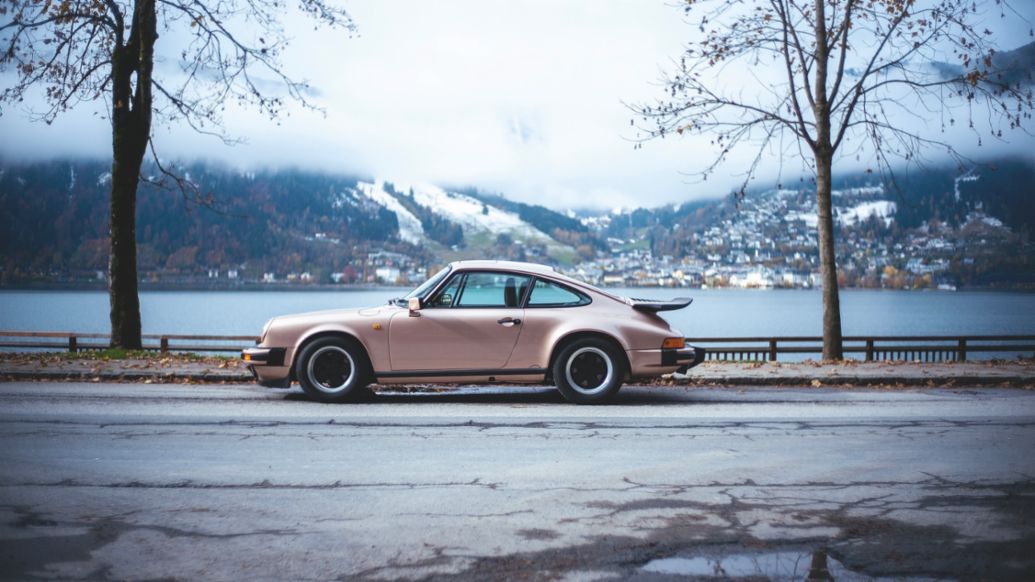
“There is a long tradition of colour sample cars in Zuffenhausen,” says Daniela Milošević, a designer at the Weissach Development Centre, as she elaborates on the process: “The motivation for having sports cars produced in new exterior colours has been the same for several decades: it is usually very difficult to imagine a colour that you have only seen on a small paint sample on an actual car. Regardless of whether it is a solid or metallic shade, the interplay of light and shadows is significantly different. And through ever-changing trends and external influences, the way that a colour or world of colours is perceived changes constantly. So we’re always very happy to be able to present our favourite colour proposals on colour sample vehicles,” explains the 30-year-old, whose first colour development was Ice Grey Metallic.
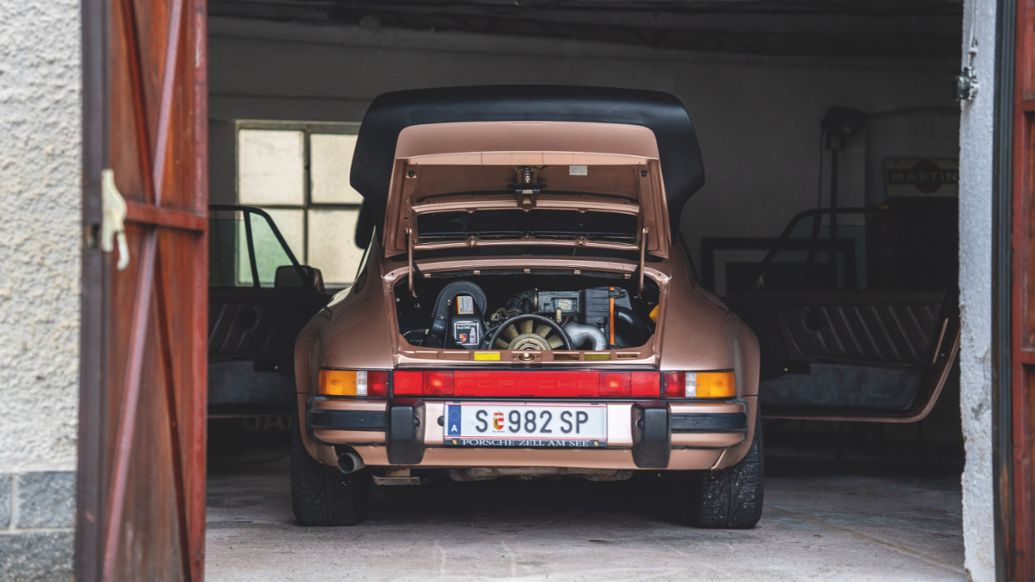
“It's the first colour we designed for Porsche. It was first presented on the Mission E Cross Turismo show car and is now also included in the Taycan’s production colour range. Of course, after a few years of professional experience you can name a litany of colours, but you don’t soon forget the first one you designed. The Pearl Pink Metallic on this 911 shows that Porsche’s interest in light and pastel colours was already significant, even back then. Today, this range of colour is increasingly seen on the Taycan,” says the paint expert from the Colour & Trim department. Some things – and colours are no exception – take time to break through. Sometimes as long as 35 years.
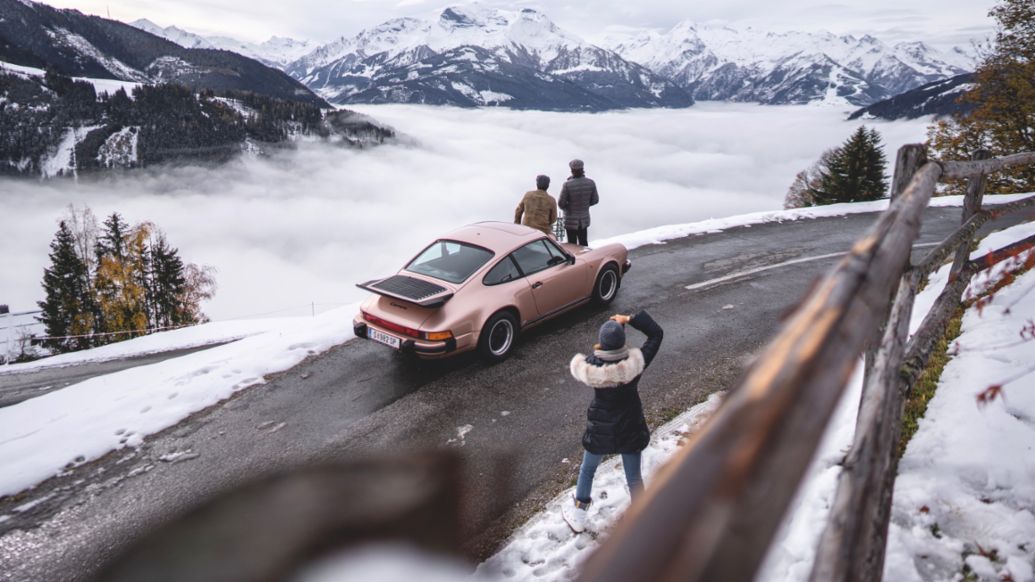
And it seems almost fitting when the full force of the paint comes to light below an Alpine sun. It’s time for Rosa, as the car is called, after the German word for pink, to tell her story. Or better yet, for her two owners to do so: “Starting in 1987, the 911 spent four years in Stuttgart as a factory-owned Porsche vehicle before finding its way to a Bosch workshop operator in Austria for 685,000 Schillings. Now it’s back in Porsche-country, so to speak,” smiles Arno Haslinger with a wink, offering a first hint as to the noteworthy project partner and friend who watches over Rosa the G-Model with him. Hailing from Austria, Haslinger wrote his thesis on the Porsche 911 at the Vienna University of Economics and Business and worked internationally within the luxury automotive industry for many years. He’s an aficionado of the three-digit icon and often likens it to the world of selective timepieces in his publications. The English auction house Bonhams has relied on his expertise in valuable watches for many years. His friend and colour sample car companion is Mark Philipp Porsche, son of Ferdinand Alexander Porsche, the creator of the 911.
Mark Porsche wrote his thesis on the watch industry, with a focus on market research and product development, and this was how the two men first came into contact, and later became friends. Today, Mark Philipp Porsche is active in the automotive industry and holds Supervisory Board positions at Volkswagen AG. The two have long cultivated a unique transfer of knowledge between friends – an exchange that resulted in a joint project that was perhaps inevitable.
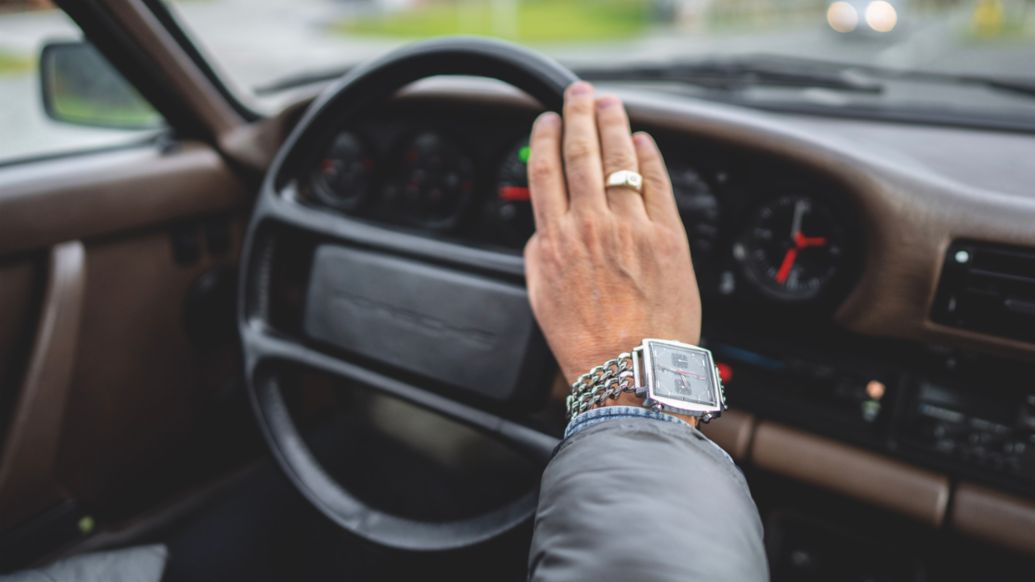
Haslinger found the colour sample car seven years ago by chance in a newspaper advertisement in the ‘Salzburger Nachrichten’. “When I opened the Saturday edition over a morning cup of coffee, I had the feeling that I absolutely had to read the advertisements. Lo and behold what I found sounded most interesting,” he recalls. “I called Mark and asked if he wanted to come look at a car with me. When we met the salesman the next day, we were both thrilled about its condition and history and decided on the spot to turn it into a joint project.” After a thorough inspection, it turned out that at the age of 28, Rosa – as the extraordinary 911 was soon dubbed – still shone in her original paint job and was actually still sealed with the wax from the factory.
A Hannibal Grey interior
“The interior features leather in a colour called Hannibal Grey, but it has a brownish look that contrasts perfectly with the grey-green carpet and the perforated light-brown roof lining. The dashboard, A-pillars, side and rear window shelves are all covered in fine leather as an optional extra. A sunroof, electric seat adjustment and heating as well as the Blaupunkt Bremen stereo complete the extensive equipment package.
Shifting is done with the coveted G50 gearbox in the leather-upholstered centre console, while the four-spoke steering wheel prominently bears the Porsche logo on the impact pad,” continues Haslinger, reverently listing the features of the unique 911. On the outside, the 1987 G-Model is equipped with the aerodynamics package from the world of motor racing. A front spoiler and rear turbo spoiler streamline the air flow and have a stabilising effect. The finely coordinated elements boost the Carrera’s top speed by 9 km/h to 254 km/h.
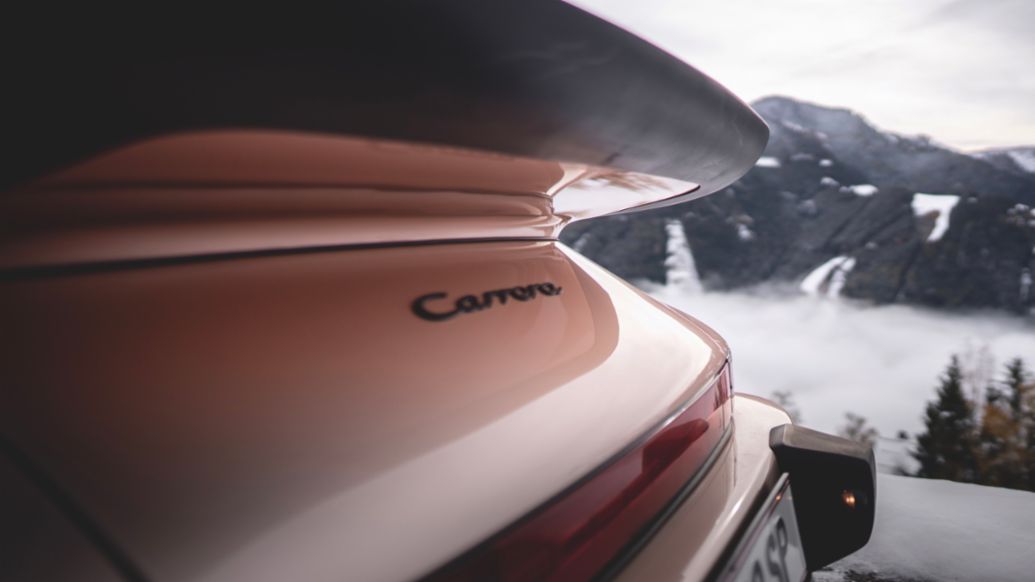
The friends guard their automotive treasure with all due care: it is only driven when there is no salt on the road, its oil is changed regularly – and accelerating aggressively with a cold engine is never a good idea. All known information about the colour sample car has been carefully archived by the two men.
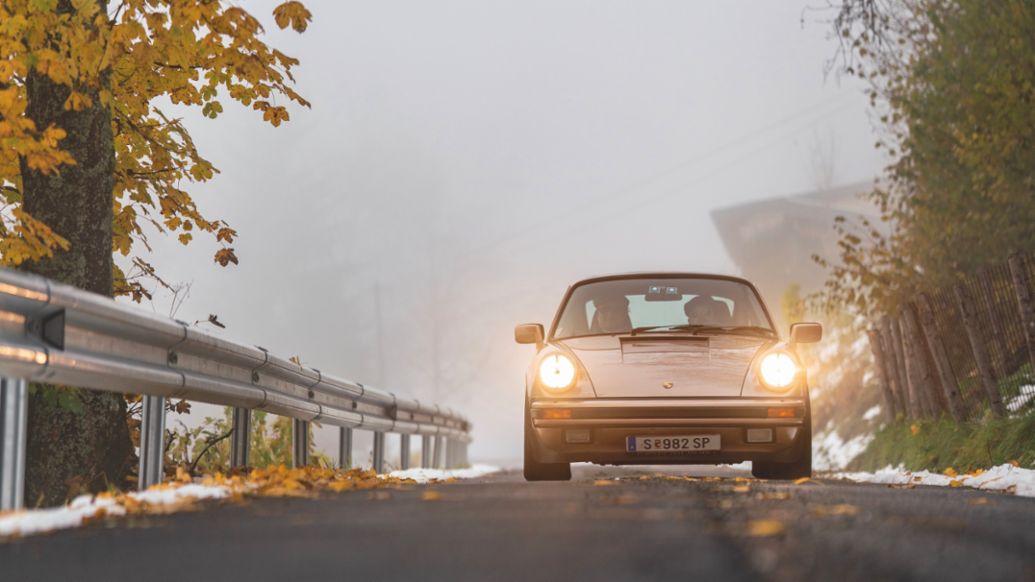
“Perhaps the Porsche AG driver at the time will even get in touch, if he’s still alive,” says Haslinger, ahead of Rosa’s story being told in an issue of Porsche Klassik. It would be nice to learn a bit more about the car, even if the feeling it gives its owners is perfect already. “Rosa is the source and drive of our creative exchange,” says Mark Porsche. “In part because a 911 in such a special configuration that both fascinates and polarises opinion, and partly because the car, which goes between our respective garages, gives rise to so many shared trips and conversations.” The friends are already looking forward to when the Großglockner pass awakens from its annual hibernation. The golden eagle, in any case, will no doubt be keeping an eye on the Pearl Pink Metallic paint.
Info
Text first published in the magazine Porsche Klassik 23.
Author: Bastian Fuhrmann
Photography: Carolina Porsche and Markus Schwer
Copyright: All images, videos and audio files published in this article are subject to copyright. Reproduction in whole or in part is not permitted without the written consent of Dr. Ing. h.c. F. Porsche AG. Please contact newsroom@porsche.com for further information.
